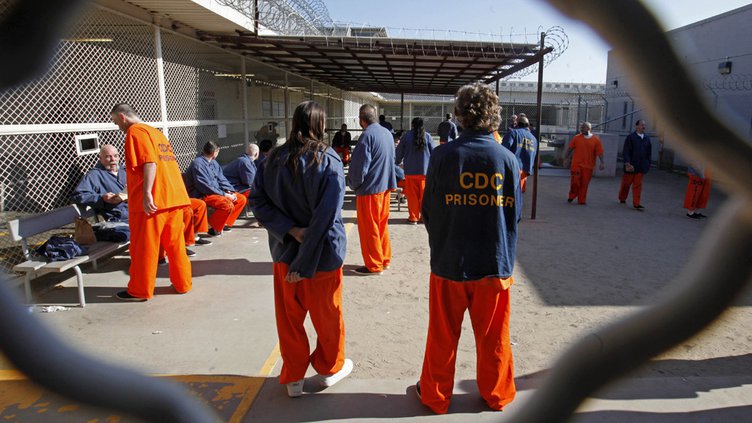Some 1,080 workers — including a number from Manteca, Lathrop, Tracy, and Ripon — will lose their jobs when the state closes the Deuel Vocational Institute by the end of September 2021.
The 67-year-old prison is 10 miles southwest of downtown Manteca on Kasson Road just off Interstate 5 in the rural area east of Tracy along the San Joaquin River. It is the sixth oldest of the state’s 35 prisons.
DVI’s pending shutdown comes 17 years after the last prison closure in California that also was a facility in San Joaquin County. That’s when the state closed the Northern California Women's Facility in Stockton in 2003. It was located on the southwest corner of Austin and Arch roads 10 miles northwest of Manteca.
The closure of DVI will leave two correctional facilities in Stockton — the California Health Care Facility and the California Youth Authority Facility. Both are 10 miles north of Manteca.
A bill awaiting Gov. Gavin Newsom's signature would also phase out the state's remaining juvenile prisons including the Stockton CYA facility. It is part of Newsom’s ongoing effort to reduce the state’s incarceration footprint that is being expedited due to pending massive budget cuts due to the COVID-19 pandemic.
The move by the California Department of Corrections and Rehabilitation on Friday to close DVI will save the state $182 million in annual operating costs. It also will avoid the need to make $800 million in repairs to keep the facility viable as a prison.
The 1,080-member workforce is split almost evenly between correctional officers and support staff. CDCR officials said some employees may have the opportunity to transfer to other prisons.
CDCR said the 1,500 DVI inmates will be transferred to other facilities based on their housing, custody and rehabilitative needs. The facility sitting on 782 acres that opened in 1953 was designed for a capacity of 1,681 inmates. At its peak, DVI in 2012 held 4,000 inmates. It was accomplished in part by converting the gym to a massive dorm room with bunk beds stacked three high with barely enough room to walk between the rows. That changed after a riot. Bunk beds were limited to two high to allow guards to see over them.
A series of new laws and ballot measures over the past 10 years has substantially reduced the statewide prison population to 97,266 in 35 prisons as of Aug. 31. The prison population peaked at 173,000 inmates in 2006 when the CDCR was the nation's largest state prison system in terms of population.
Governor Gavin Newsom also approved the earlier releases of more than 10,000 inmates in response to the pandemic. He opposes a measure on the November ballot that could roll back some of the criminal justice changes and keep more inmates in prison longer.
A second prison is also expected to be shuttered. Leading candidates are San Quentin State Prison, the state's oldest prison that sits on high-value shore-front property north of San Francisco, or the antiquated California Rehabilitation Center in Norco, east of Los Angeles.
DVI has had two missions over the years. It serves as a reception center and to provide housing for Level I and Level II inmates.
As a reception center, DVI receives inmates being sent into the state prison system from 29 Northern California counties. They are processed over 90 days during which time they are evaluated. That includes personal interactions, criminal records, education, life history, as well as, medical and psychological histories. They’re then transferred to the appropriate prison.
Level I inmates include work farms and forestry camps. They are either first-time or low-risk inmates who have “worked themselves up in the system” by good behavior. As such it affords the inmate better living conditions and a few more freedoms than they would have elsewhere in the state prison system.
Level II inmates are those who are nearing the end of their sentence or those who have committed crimes that are less severe. They can be allowed on work details.
Inmates at DVI can work prison maintenance, food service and custodial jobs among others. Inmates also have the opportunity to earn their General Education Degree as well as take basic adult education classes. Career training classes include heating and air conditioning, auto body repair, and building maintenance to name a few.
DVI also maintains dairy farm with 1,600 head of cattle with 600 being milked on any given day. Inmates help process 162,000 gallons of milk a month that are shipped to other prisons throughout Northern California.
To contact Dennis Wyatt, email dwyatt@mantecabulletin.com





